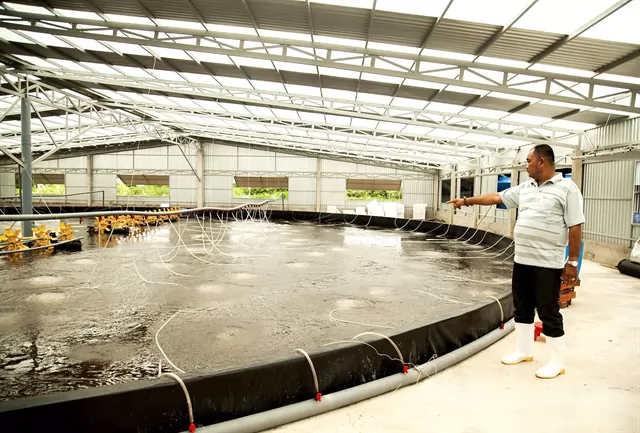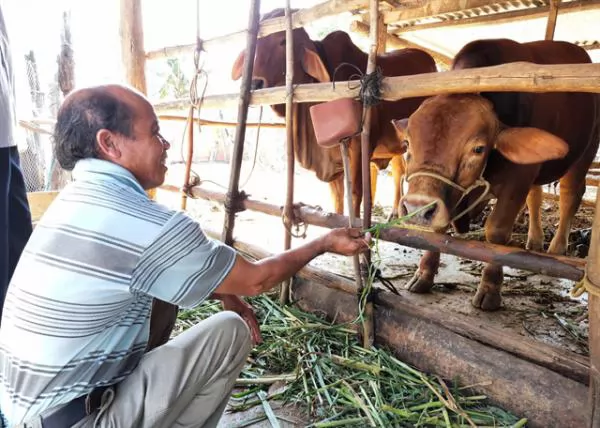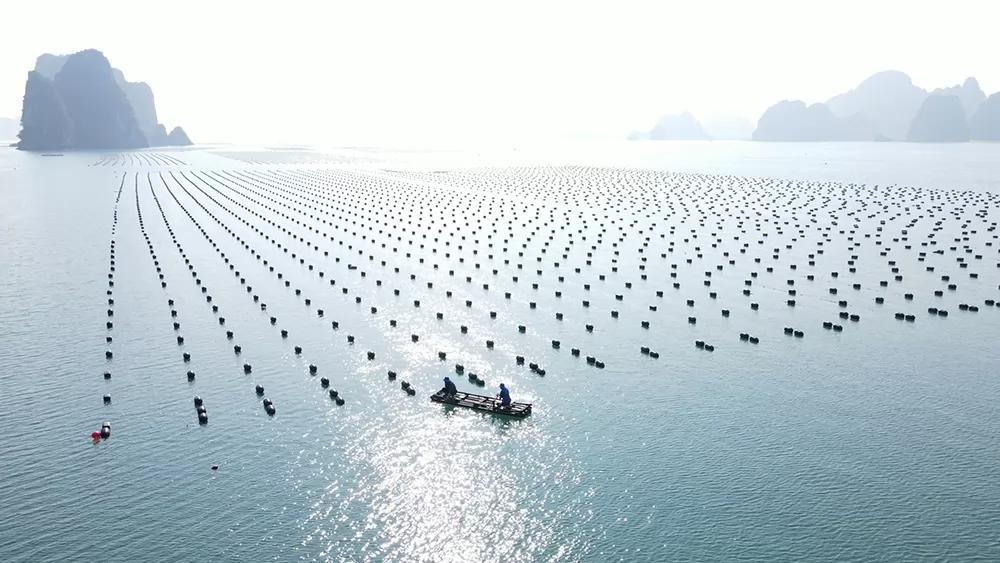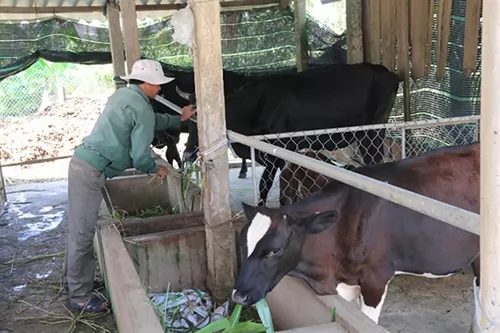Bến Tre Province expands hi-tech shrimp farming

A hi-tech shrimp farming pond in Bến Tre Province's Thạnh Phú District. — VNA/VNS Photo Hồng Đạt
A large number of shrimp farmers in the Cửu Long (Mekong) Delta province of Bến Tre have switched from traditional intensive and semi-intensive breeding to hi-tech industrial breeding methods to increase yield and efficiency.
BẾN TRE — A large number of shrimp farmers in the Cửu Long (Mekong) Delta province of Bến Tre have switched from traditional intensive and semi-intensive breeding to hi-tech industrial breeding methods to increase yield and efficiency.
It includes a two-stage process in which farmers use multiple ponds for breeding shrimp and treating wastewater.
The shrimp fry are first bred in a nursery pond for a few weeks before being transferred to the main pond for intensive breeding.
The hi-tech industrial shrimp farming area has surged from 550ha in 2018 to more than 2,500ha now with an average yield of 60-70 tonnes per hectare per year.
The total annual output is 42,000 tonnes, or half the province’s total shrimp production.
This method offers advantages like preventing diseases, high breeding density and survival rate and environmental protection.
Farmers using it earn VNĐ700-800 million (US$30,000-43,200) per hectare per crop and can harvest two to three crops a year, according to the provincial Department of Agriculture and Rural Development.
Most hi-tech shrimp farming areas are in the coastal districts of Ba Tri, Bình Đại and Thạnh Phú.
Lê Văn Sấm of Thạnh Phú District’s Thạnh Hải Commune has 40ha and harvests 70-90 tonnes per hectare annually.
Farmers need to invest in pond equipment such as plastic sheets to cover the beds, wastewater treatment facilities and oxygenation equipment, he said.
But there are difficulties caused by inadequate irrigation in many places, according to the department.
Many farmers are reluctant to invest in the model as it requires high-tech breeding skills and large investments, it added.
The province has identifies fisheries as one of its key economic sectors and focuses on exports.
Nguyễn Văn Buội, deputy director of the department, said the province plans to expand the hi-tech industrial shrimp farming area to 4,000ha and annual output to 144,000 tonnes by 2025 and 5,800ha and 208,000 tonnes by 2030.
To achieve the targets, it encourages farmers to develop co-operatives and each district to establish at least one co-operative that breeds brackish water shrimp and earns revenues of VNĐ100 billion ($4.3 million) a year.
It plans to develop three concentrated shrimp farming areas of 100ha in Ba Tri District, 300ha in Bình Đại District and 100ha in Thạnh Phú District.
It will invest in irrigation and other infrastructure facilities to serve them.
It has invested VNĐ240 billion ($10.3 million) to build infrastructure for two hi-tech shrimp farming areas in Ba Tri and Bình Đại.
It has encouraged companies to use hi-tech methods to produce shrimp fry, and targets meeting 60 per cent of demand, equivalent to 15 million high-quality fry, by 2025. VNS
Maybe you are interested

Gia Lai seeks to improve quality of beef cattle through cross-breeding
GIA LAI — Gia Lai Province, which has the largest beef cattle herd in the Tây Nguyên (Central Highlands) region, has undertaken many programmes to develop the quality of its animals by crossing native cows and hybrid bulls.

Vietnam's seafood industry achieves sustainable growth: Today's position, tomorrow's aspiration
Vietnam has become one of the world's top three seafood exporters, affirming its role as a key economic sector while opening up expectations for sustainable development and deeper international integration.

Mekong Delta develops beef, dairy farming
HCM CITY — Many provinces in the Cửu Long (Mekong) Delta have developed dairy and beef farming since it provides farmers with an additional income and benefits from local agricultural by-products.





